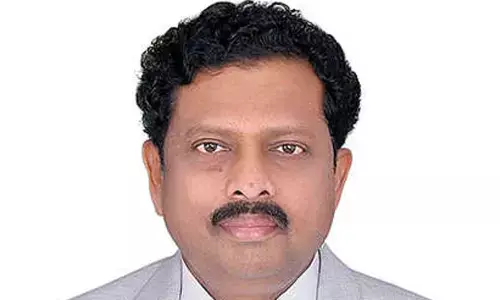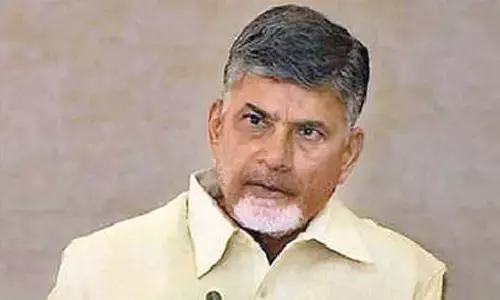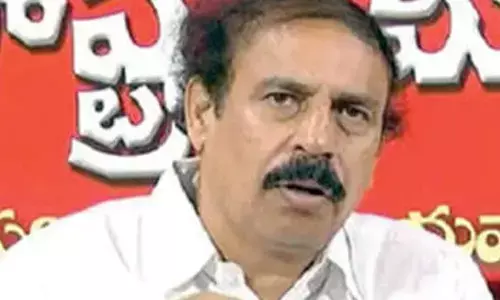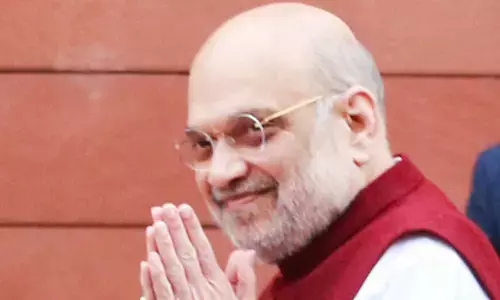Leaders lack vision to think beyond vote-bank politics
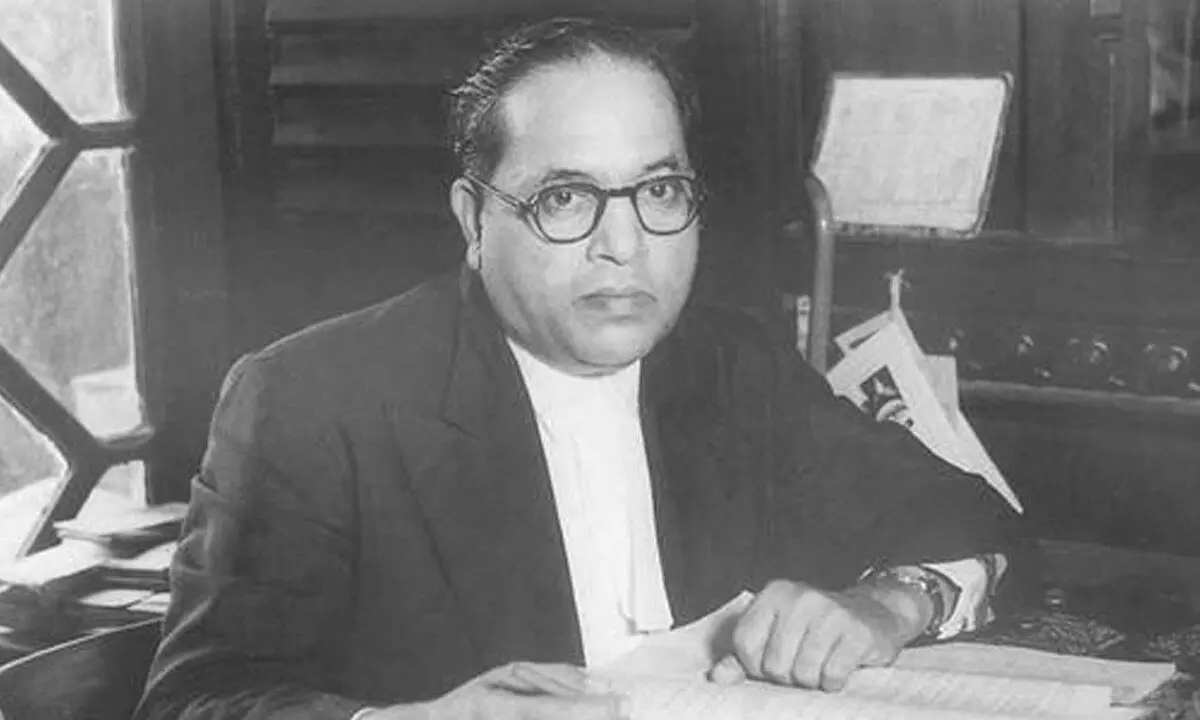
Dr Bheem Rao Ambedkar
In the words of Ambdekar “The roots of democracy lie not in the form of Government, Parliamentary or otherwise. A democracy is more than a form of Government. It is primarily a mode of associated living.
This being the election year we will see every politician swearing by Dr Bheem Rao Ambedkar popularly known as Babasaheb Ambedkar. It would be interesting if the people can ask them what they know about him, what were ideals behind Preamble to India's Constitution and when did the Constituent Assembly adopt it? It would also be interesting if these leaders who claim to have imbibed his legacy are asked to explain why the statutes of Ambedkar have a finger pointing into the horizon.
I am sure majority of the leaders would fumble. No one would say that the finger that points towards horizon guides his followers towards salvation. It is unfortunate that they do not think beyond birthday celebrations and consider him to be a caged icon who can be used to attract Dalit votes.
He was the man who offered a radical democracy, a theory that can guide us in this century and the centuries to come. It is high time people start questioning the law makers and prevent attempts to dismantle the principles of democracy and give new definitions to what Ambedkar had preached.
Ambdekar said, "The roots of democracy lie not in the form of Government, Parliamentary or otherwise. A democracy is more than a form of Government. It is primarily a mode of associated living. The roots of Democracy are to be searched in the social relationship, in terms of associated life between the people who form a society." [Prospects of Democracy in India, 1956] For this ideal, he turned to the Buddhist tradition. He insisted that Buddhist Sanghas were the models for parliamentary democracy.
He reminded us, "democracy is not a plant that grows everywhere". He would often cite the case of Italy and Germany where absence of social and economic democracy led to the failure of nascent political democracy. For him, the first and foremost condition for democracy was that there should be no glaring inequalities, that every citizen should enjoy equal treatment in everyday administration and governance.
Forgetting all this, of late we have mastered the fine art of giving a tag to our icons. Ask anyone who is Mahatma Gandhi. The answer would be he is father of the nation. Alluri Sitarama Raju a tribal warrior, Bhagat Singh a hot headed rebellious freedom fighter. On the same lines, Ambedkar is associated with caste system. No one bothers to study the real dimensions of his thought. He always believed in the concept of Vasudhaiva Kutumbakam.
The Bharatiya Janata Party too seems to be in a great hurry to join the bandawagon to induct Ambedkar into its pantheon of national leaders and appropriate his legacy projecting themselves as the guardians of Ambedkarism. The BJP feels that with other parties unable to instil the required confidence among the Dalits, they can try and bring them under their fold so that the nationalist identity can be added to the Hindu identity of the saffron party and they can also tell the people as how Ambedkar had disapproved the caste system.
The think tank of the BJP wants to take into the people the meaning of ideal democracy as envisaged by Dr Ambedkar, evaluate the present definitions and status of democracy and come with a theory on ideal democracy.
Ambedkar was always opposed to the Western model of democracy and hence recommended free and fair elections. The leftists who too swear by Ambedkar today were his major critics as they felt that democracy would lead to rule by capitalist class. But Babasaheb advocated a different theory based on the Indian context. For him democracy and free and fair elections were tools to bring about welfare of the people.
As successive governments failed to follow his theory of democracy in letter and spirit, to some extent capitalist class domination has increased in India.
If the BJP can adopt the theory of Ambedkar in true spirit, there is a possibility for reversal of the situation. But the focus of most of the regional and national parties is more on competing in installing tallest statues in places like Hyderabad, Vijayawada and Mumbai. Whatever explanation they may give the main idea is to attract the Dalit votes and for this every party has created a Bheem army.
The Congress which had lost its political ground in the last nine years is also trying to win the Dalits though it is not an easy task for them. The Congress party had lost majority of its Dalit vote bank to parties like Bahujan Samaj Party and BJP at the national level.
In states, the regional parties have created a divide between different castes and communities to ensure their victory in next elections which goes against the teachings of Ambedkar. The narrow outlook of such parties can cause great damage to the democratic fabric of the country.
The present-day political parties are coming up with new theories and narratives for everything. Federalism, Democracy and even in following the Constitutional obligations as enshrined in the Constitution which Ambedkar keeps tucked under his left arm. If one watches his statue and study every aspect of it carefully, they would realise that Ambedkar is seen wearing a suit with pen in his breast pocket. Babasaheb also had a great liking for Art. He believed "everyone should love harmony in music and beauty in art." He had a great desire to be a painter so that he could paint a portrait of Lord Buddha.
Historians say Ambedkar was a serious scholar of India's history, society and foreign policy. He was also among the first dedicated human rights lawyers, as well as a journalist and a statesman. Over decades of different political philosophies of the parties that ruled the country, the definition to concepts like federalism and the role of constitutional posts have been fast changing which causes concern.
For example, we are seeing how the constitutional office of the Governor is under attack and how some chief ministers are at loggerheads with the Governors. It is a matter of serious concern that the political differences are being extended to the level of giving a go by to protocols even on occasions like the Republic Day.








